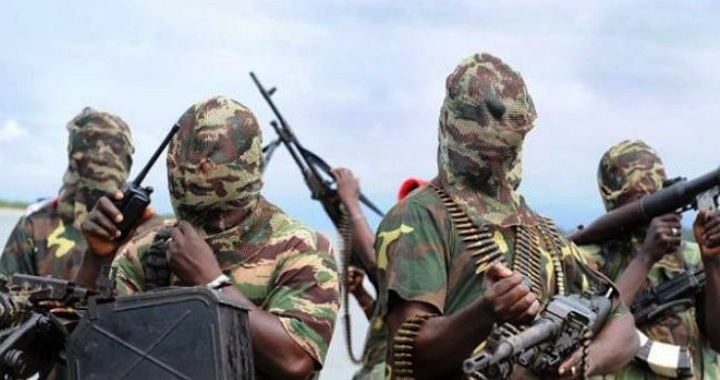Boko Haram is not a name most of us are familiar with, but we will likely hear it soon. The entire swathe of countries which straddle the divide between North and Sub-Saharan Africa are facing a problem. As the Sahara expands southward, the collision of cultures and peoples is bringing the Islamic north into conflict with the largely Christian south. We have seen the violent results of this schism most tragically in Darfur in the Sudan, but Mali has been a hotspot recently as France sent military aid to the Christian south, driving the Muslims back into their northern strongholds.
Boko Haram is the name given to the movement in northern Nigeria, Muslims in conflict with the evangelical leaders of Africa’s largest population, and second largest economy. I think it’s worth looking at Nigeria, because there are things to learn about the likely future of many areas of the world, and an important lesson in how Christianity might help mold that future into one of peace and mutual prosperity.
From a Christian perspective, it would be easy to look at Nigeria, and see Christians being killed in northern enclaves, cry Christian persecution, and rise to the defense of our brethren. But I think we would miss an important lesson. If Boko Haram is the umbrella under which the Islamic rebels gather, then Boko Haram is, in a sense, our enemy. And we must love our enemies.
And I think the crux of the matter is this, and here is the great lesson: our enemies have a reason. They are not our enemies by whimsy, by accident, or by pathology (in all but some extreme, more individual cases). They are our enemies because they disagree, and they feel that violence is their only recourse.
Related: Muslims, Christians, Jews, and Peace – by Brian McLaren
Loving our enemies isn’t about mere gestural agape, a sort of smiling, blithe acceptance that we have fatefully been cast on opposing sides. Loving our enemies should be an invitation to understand them, and I think Nigeria is a very good case study, because it isn’t suffering from Western media saturation, and so opinions are more fluid. The stakes to the outsider are lower, in spite of the tragedies unfolding.
Seen from one point of view, the conflict in Nigeria is religious. Muslims are attacking Christians, largely in areas that are already predominantly Muslim. Here we have an old-fashioned religious war.
But Islam’s history in Nigeria goes back to the early days of Islam, while Nigeria’s Christian history is relatively recent. So, one could also say that the new, dominant population is being attacked by the old guard, who have lost power. This casts the scenario in terms of revenge, and of a power shift, reminiscent of the Hutu and Tutsi power shifts in Rwanda.
Perhaps more importantly, the Christian history of Nigeria coincides with the incursion of the British Empire, when Africa was carved up amongst the various Great Powers of the day. So, here we can see a post-colonial conflict, as we have seen across Africa since the independence movements following World War Two.
But to see all of these perspectives, to draw on all these views, is to miss some very fundamental issues. The south of Nigeria is oil rich. The economy of Nigeria is based almost entirely on oil. The government owes its allegiance to oil interests, much more than it does to the people (Democracy in Nigeria is an at best fragile, at worst dubious construct). The north, which is largely oil-free, and has little representation in government circles, is therefore of little consequence to the political and economic life of the country.
Yes, there is a religious reality. Yes, there is an ethnic reality. But really, it’s the economy.
So, while the Nigerian government, led by an evangelical Christian, pours its time and energy into rewarding the oil interests in the south, the north goes neglected. To the point that malnutrition is a huge problem for the northern Muslim population, which is about as large as the southern Christian population. Incomes in the south are three times those in the north. Goodluck Jonathan, the president of Nigeria, might do well to remember that as he treats the least of his citizens, so he treats Jesus.
Also by John: Hitler in Heaven?
Instead, the reaction from the south has been massive and often indiscriminate violence. As many people have died at the hands of the military as have died at the hands of a group described as “terrorist” and “extremist” and “secessionist”.
Perhaps President Jonathan would be better served by not shooting his enemies, but by feeding his enemies.
The people we define as our enemies have grievances. If we are to love them, we should try to understand them. If we understand them, we might come to the conclusion that there is a basis for those grievances, which we can then address. We have generated a global narrative where those without means struggle in abject poverty, and when they try to rise against those who withhold from them the world’s great wealth, they are criminalized and destroyed.
When our enemies have less than us, when our enemies suffer, when our enemies rail against us with their meager means, perhaps we should not criminalize them. Perhaps we should not shoot them. Perhaps we should not bomb them.
Perhaps we should love them.
Perhaps we should feed them.

